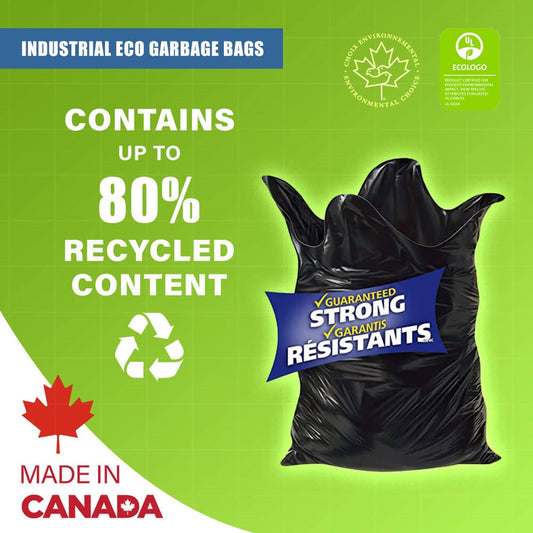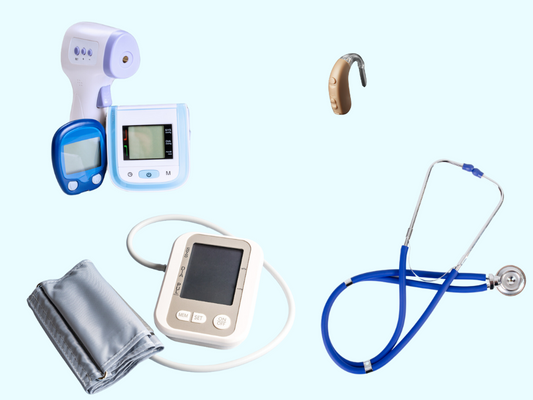
N95 vs Surgical Masks: Choosing the Right Protection for High Air Pollution
Wearing a mask not only safeguards you against COVID-19 but also shields your respiratory system from air pollution, especially in Canada. Various regions in Canada, including cities like Toronto and Vancouver, experience varying levels of air quality index (AQI). Some areas may encounter poor air quality, and certain regions might anticipate challenges related to air pollution in the coming months. For better protection, it is essential to choose masks that offer optimal health protection.
When considering to Buy N95 Mask Online in Canada, one crucial decision we face is choosing the right protective gear. N95 and surgical masks are two popular options, each with its own set of features and advantages. In this comprehensive guide, we’ll delve into the key differences between N95 and surgical masks, helping you make an informed decision to safeguard yourself in high air pollution environments.
N95 Masks

N95 respirators, also classified as facial masks, are used to protect individuals from inhaling airborne particles by fitting closely to the face and filtering the air breathed in. The “N95” designation indicates that the mask meets the National Institute for Occupational Safety and Health (NIOSH) criteria for filtration. It blocks at least 95% of very small particles, including viruses and bacteria. These masks are commonly used in healthcare facilities and industries where exposure to airborne contaminants is a significant concern.
Key Features of N95 Respirators:
1. Filtering Power Matters
When it comes to combating air pollution, the filtration power of a mask is paramount. N95 masks derive their name from their ability to block 95% of airborne particles. This includes not only pollutants but also viruses and bacteria, making them a formidable choice in high-risk situations.
Investing in N95 masks ensures that you are equipped with a robust shield against microscopic threats. The advanced filtration technology embedded in these masks sets a high standard for protection, making them a go-to option for individuals prioritizing safety in polluted environments.
2. Form-Fitting Seal
One distinguishing feature of N95 masks is their snug fit. The mask creates a snug fit around the nose and mouth, minimizing the risk of unfiltered air entering. This ensures that you breathe only through the designated filtration system, maximizing the protective benefits.
The form-fitting seal of N95 masks not only enhances their efficacy but also provides a level of comfort for extended wear. It’s a critical factor, especially for those facing prolonged exposure to high air pollution. Choosing a mask that fits securely is a proactive step toward ensuring comprehensive protection.
3. Reusability and Durability
N95 masks can be reused if properly maintained for extended use. Their durability makes them a cost-effective option for individuals seeking long-term protection in areas with persistent air quality concerns.
The reusability of N95 masks not only contributes to their economic value but also emphasizes their environmental sustainability. By choosing a durable option, you not only protect yourself but also reduce the overall environmental impact of disposable masks. It’s a conscious choice for both personal and global well-being.
Surgical Masks

Surgical masks, or medical masks, are disposable with a loose fit that forms a physical barrier between the wearer’s mouth and nose and potential contaminants in the surrounding environment. Their main purpose is to shield the wearer from splashes, sprays, and large-particle droplets. Widely employed in healthcare settings, level 3 surgical mask in Canada have proven effective in curbing the transmission of respiratory infections.
Key Features of Surgical Masks:
1. Lightweight and Breathable
Surgical masks, on the other hand, are known for their lightweight and breathable design. While they may not offer the same level of filtration as N95 masks, they provide a reasonable barrier against larger particles, making them suitable for everyday use.
The lightweight nature of surgical masks makes them an excellent choice for individuals prioritizing comfort during short-duration activities. Whether you’re running errands or commuting, the breathable design ensures that you can go about your day without feeling encumbered by your protective gear.
2. Loose-Fit Design
Unlike N95 masks, surgical masks have a loose-fit design. This allows for easier breathing but may result in gaps around the edges, potentially allowing some particles to enter. Surgical masks are more suitable for environments with lower pollution levels.
The loose-fit design of surgical masks addresses the need for comfort in everyday use. It’s an ideal choice for situations where the primary concern is larger particles rather than microscopic threats.
3. Single-Use Convenience
One notable aspect of surgical masks is their disposable nature. Intended for single-use, they offer convenience but can become costly over time, especially in situations where regular replacement is necessary.
The single-use convenience of surgical masks aligns with the need for simplicity and ease of use. It’s a practical choice for those who prefer the hassle-free option of discarding the mask after each use. However, it’s essential to weigh this convenience against the long-term cost implications and environmental considerations.
Comparison Table: N95 vs. Surgical Masks
| Feature | N95 Respirator | Surgical Mask |
| Filtration Efficiency | 95% filtration against particles as small as 0.3 microns (including viruses and bacteria) | 60-80% filtration against particles as large as 5 microns (mostly bacteria)
|
| Fit | Tight-fitting with adjustable straps for a secure seal around the nose and mouth | Loose-fitting with ear loops or ties
|
| Comfort | Less comfortable due to tight fit and restricted airflow | More comfortable due to loose fit and easier breathing |
| Reuse | Can be reused if properly stored and not damaged | Disposable, should be replaced after each use |
| Cost | More expensive | Less expensive |
| Uses | Healthcare settings, high-risk environments, wildfire smoke, asbestos exposure | General public use, low-risk environments, source control |
Making the Right Choice
When faced with high air pollution levels, choosing the right protection is essential for safeguarding health. The decision between N95 respirators and surgical masks depends on various factors:
1. Filtration Requirements
If the primary concern is protection against fine particulate matter present in air pollution, N95 respirators with high filtration efficiency are the preferred choice. Understanding the specific filtration requirements ensures that you select a mask tailored to the threats prevalent in your environment.
2. Occupational Exposure
For individuals who work in environments where there is a high risk of airborne contaminants, like healthcare professionals or industrial workers, N95 respirators provide a higher level of respiratory protection. Assessing occupational exposure helps in determining the level of defense required for different professional settings.
3. Fit and Comfort
N95 respirators require a proper seal for maximum effectiveness, and individuals must ensure a comfortable fit. Surgical masks, on the other hand, are generally more comfortable due to their loose fit. Balancing the need for a secure fit with comfort is crucial for ensuring consistent and reliable protection.
4. Duration of Use
Consider the duration of mask use. N95 respirators may be more suitable for prolonged use in high-risk environments, while surgical masks are designed for shorter durations. Aligning the duration of use with the mask’s design and intended purpose ensures optimal protection without compromising on comfort.
5. Availability and Cost
Depending on the region and current circumstances, the availability and cost of N95 respirators and surgical masks may vary. It is essential to balance protection with practical considerations. Assessing the local availability and cost factors ensures that you make a choice that is both effective and sustainable in the long run.
Conclusion
In the battle against high air pollution, choosing the right protective mask is pivotal. N95 masks stand out for their robust filtration capabilities and reusability, offering a reliable defense against a variety of airborne threats. Surgical masks, while less comprehensive, are convenient for daily use in less polluted environments. In the end, it depends on your specific circumstances and the level of protection you require. Stay informed, stay protected, and breathe easier in the face of air pollution challenges.







